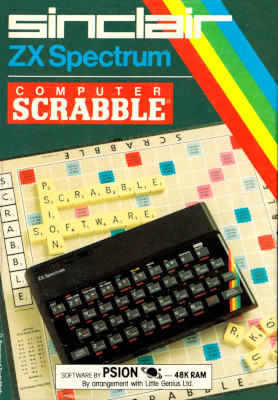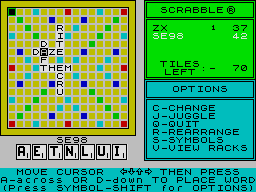“Scrabble isn’t a word game. It’s an area-control game with 150,000 rules to define legal placement for your resources. Some of those rules have mnemonics in the form of words you know.”
The origin of this fair description of Scrabble is traced in a recent Hacker News discussion of the game, prompted by Oliver Roeder’s 2022 article On the Insanity of Being a Scrabble Enthusiast.
Although I’d picked up a couple of Scrabble books over the years, I was always less excited by the definition-free (I don’t think I should call it “meaningless” even if the two terms appear equivalent…) vocabulary memorisation needed to know what those 150,000 rules are in order to actually be good at the game. But the online games and training tools Roeder mentions - such as NASPA Zyzzyva: The Last Word in Word Study and the wordwalls of Aerolit could now make that, while still daunting, more interactive and less tedious than reading a list of text strings.
Although I haven’t played the game in years, I did enjoy the ZX Spectrum version of Scrabble. Its vocabulary of 11,000 words (compared to 30,000 for a typical adult and 192,111 in the latest North American Scrabble word list according to Roeder’s article) was nevertheless impressive when words and game all had to squeeze into 48K of memory. And though the computer would challenge words it didn’t know, it would trust you if you confirmed they were true, which was nice of it.


Images from https://spectrumcomputing.co.uk/entry/4375/ZX-Spectrum/Computer_Scrabble
Comments
- Comment on this article on Mastodon: https://mastodon.social/@terryboon/109597465931238696
Subscribe to the newsletter: If you would like to be notified of new posts on this Eclectic Stacks blog, please subscribe to the free email newsletter (hosted with Buttondown).
You can subscribe either on the newsletter home page, or directly using the form below: